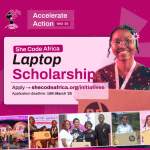Call for Book Chapters: Disability and Intersectionality – Perspectives from the Global South. Apply below.
When is Application Deadline: 28th August 2023
Tell Me About Award: The concept of intersectionality was first introduced by Kimberlé Crenshaw to describe how Black women experience multiple forms of oppression and discrimination that cannot be understood or addressed solely by looking at race or gender separately. However, the concept has since been expanded to include other forms of oppression and marginalization beyond race and gender, such as class, sexuality, ability, and age. Disability scholars such as Rosemarie Garland-Thomson, Kim Nielsen, Simi Linton and many others
used the concept of intersectionality in demonstrating how social constructions of disability intersect with other social categories to create conditions of discrimination and marginalization. Rosemarie Garland-Thomson has argued that disability is not just a medical condition, but also a social and cultural category that intersects with other identities, to frame the experiences of persons with disabilities.
In the era of human rights, the concept of intersectionality has managed to invoke new ways of thinking about complexities that are experienced by marginalized people such as persons with disabilities. Intersectionality has managed to reframe our understanding of marginalisation and “creates spaces for reflexive consideration and critical engagement.” It has further helped to connect human rights to multiple forms of oppression that
marginalized people experience.
Much of the work on disability and intersectionality is rooted in the Global North. Over the past decade, the area of disability and intersectionality has gathered an interest from scholars from the Global South, who have shown how disability intersects with poverty, low education, ethnicity (among other social life attributes) to create multiple forms of oppression and discrimination for persons with disabilities. The purpose of this book is to consolidate on the progress that has already been made and to gather new evidence with regards to how the intersectional model depicts the experiences of persons with disabilities in varied facets of life in the Global South.
The book Disability and Intersectionality – Perspectives from the Global South will be published by a reputable publisher that may be Oxford, Cambridge, or Routledge. All chapters will be subject to a rigorous peer review process.
Which Fields are Eligible? Areas of interest that chapters must show include how the intersectional model depicts the experiences of persons with disabilities (both children and adults) in the following areas:
» Education
» Health
» Social Work
» Disaster Risk Management (DRM)
» Economic empowerment and self-reliance
» Living conditions
» Music and Sport
» Exploitation, Violence and Abuse
» Sexuality
» Older Persons
» Accessibility
» Transport
» Social Protection
» Women with Disabilities
» Justice Delivery System
» Political and Public Life
» Disability Rights
» Traditional understanding of disability
» International cooperation
» Methodological approaches to measure and/or engage
with intersectionality theory and praxis.
» Gender and Queer studies
» LGBTQ
Type: Call for Papers
Who can Apply? Potential authors are invited to submit chapter abstracts in any of the themes above, of
not more than 500 words
Which Countries are Eligible? in Global South (Developing Countries)
How Many Awards? Not specified
How to Apply: Potential authors are invited to submit chapter abstracts of not more than 500 words, including a title, 4–6 keywords, and a brief bio, by email to [email protected] and [email protected] by 28 August 2023 . Authors will receive a response by 10 September 2023. Chapters of approximately 6000 words (including references) will be due for peer review by November 2023. If you would like any further information, please send an email on the addresses that are given above.
Visit Award Webpage for Details










